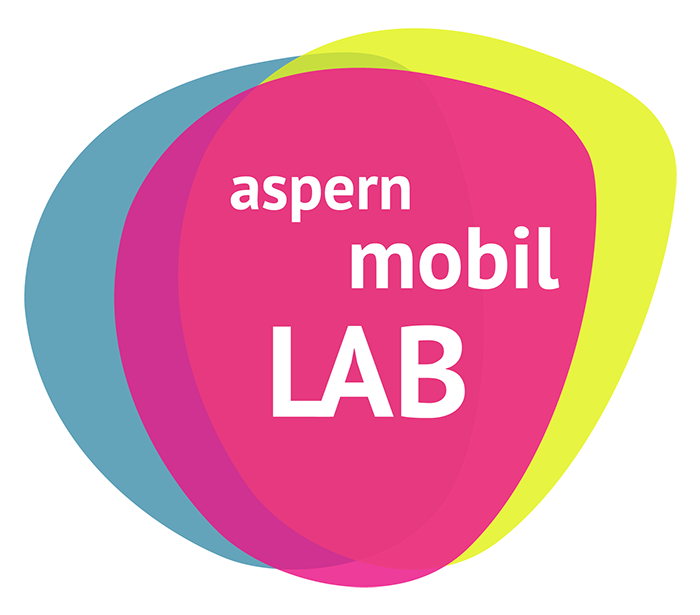Join our afternoon of games
Thanks for playing along!
On Wednesday, 15 January 2025, the students of this year’s computer science course ‘Design Thinking’ hosted an afternoon of games at the aspern.mobil LAB.
The games specially designed by the students, each with a specific thematic focus, were a lot of fun for the visitors. The students were also able to get good feedback on how to improve their games/projects.
Thank you for your visit and see you next time!

Gaming afternoon (January 2025)

Gaming afternoon (January 2025)
Design games are a wonderful tool for discussing important issues that arise during the development of an idea or a product with users and other stakeholders. We do this in a relaxed, playful atmosphere and thus clarify the design and research questions of our students. The students’ projects deal with current issues relating to mobility, climate change, sustainability and the use of public spaces.
Information on the students’ projects
- Ohrgarten: “The aim of our project is to create a visually interesting, tangible interface through which residents can express their opinions. By listening to other opinions – both agreeing and disagreeing – from peers, we want to stimulate discussion and interest in the topics on offer.”
- Keep Alive: “Keep Alive is about public participation and engagement. We want to contribute to consensus building by creating a space or system that allows people in Seestadt to share their thoughts, complaints, sounds, ideas, hobbies, art, events, etc.”
- ChoicePads: “The ChoicePads project is being developed to help the Seestadt community easily recognise noise pollution and display it on a map. The project uses ‘ChoicePads’ – pressure-sensitive plates that are installed at various locations in the city.”
- Techsploration: “Techsploration is an interactive playground concept designed to encourage collaboration, computational thinking and consensus-building skills in children..”
- SeeStadt Speaks: “SeeStadt Speaks proposes a network of small, interactive devices to be placed in public places where residents usually meet. These devices allow residents to record short voice notes on local topics such as park maintenance or ideas for events in the neighbourhood.”
- Seestart: “Seestart is a community project in aspern Seestadt in which residents work together to make public spaces greener. The main idea is a plant exchange station where people can take or give away plants and at the same time vote on which types of plants and colours should be used in the public gardens of Seestadt.”
- Public art installation: “Our team is proposing an interactive public art installation that will be designed together with the public. Through a mix of interactive elements and collaborative artworks, residents will have the opportunity to contribute their preferences and ideas and vote on concepts (we are looking for better interaction) that best reflect their wishes for the Seestadt.”
- Creative Studios für Teenager: “We want to establish creative hubs for young people in Seestadt. These hubs offer a variety of leisure activities such as music, dance and digital art. The dull grey walls in Seestadt can be brought to life through these hubs with exhibitions of art and dance performances.”
- Seestadt shines: “Our project is trying to make Seestadt shine by reducing littering and, above all, by collecting more rubbish. A waste collection object is currently a key component of our idea. We imagine it as something that you can pick up litter with and that recognises waste collection with built-in sensors.”
- Consensus Wheel: “The Consensus Game is an innovative, interactive tool designed to encourage residents of aspern Seestadt to give feedback on important urban issues. The centrepiece of this concept is the Consensus Wheel, a physical installation that is set up in public spaces such as parks or at community events such as street festivals or Christmas markets. Residents spin the wheel and receive prompts on topics such as green spaces, use of urban space, shared resources and car parks..”







